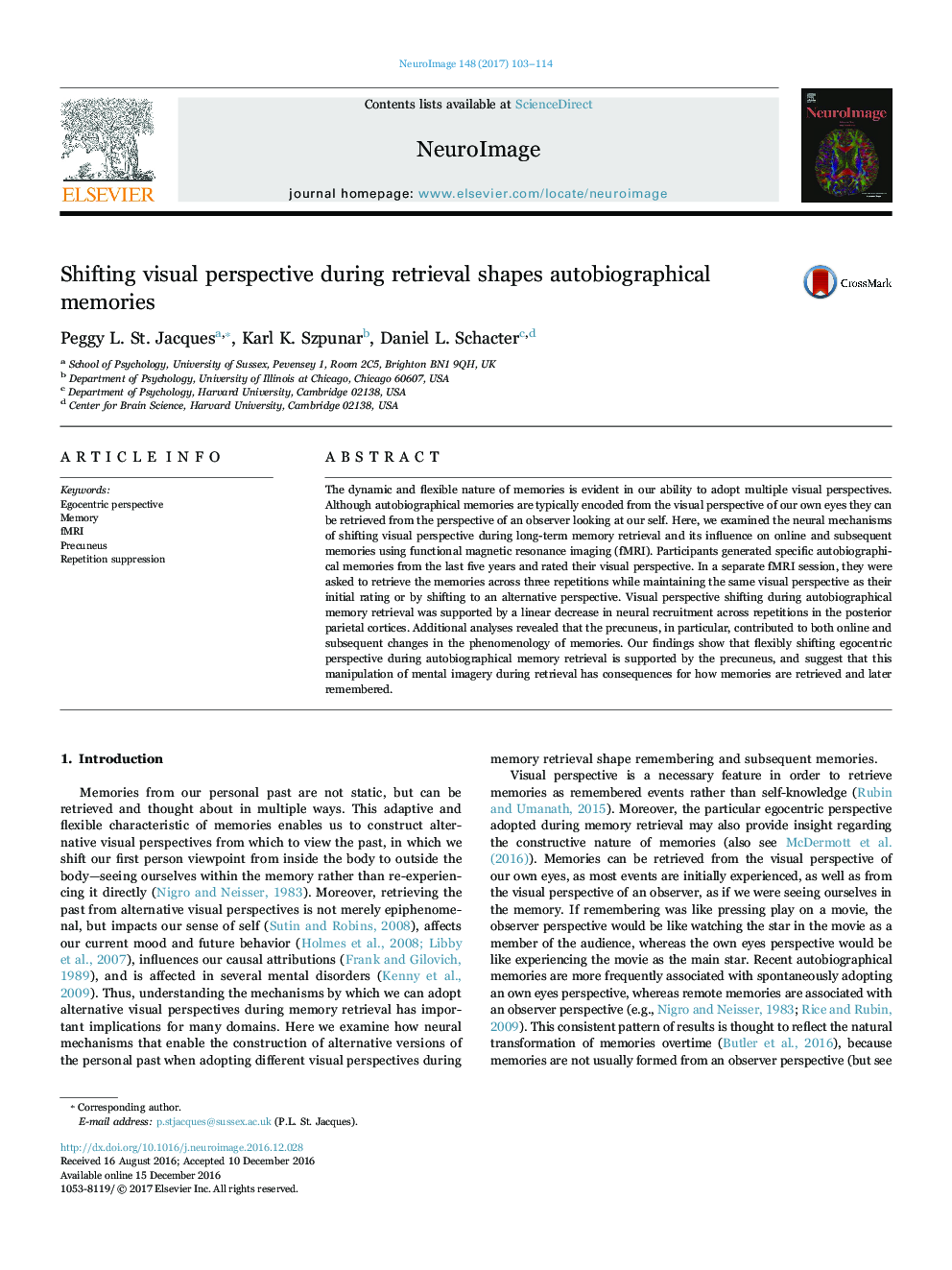| Article ID | Journal | Published Year | Pages | File Type |
|---|---|---|---|---|
| 5631280 | NeuroImage | 2017 | 12 Pages |
â¢Memories are shaped by retrieval from alternative egocentric frameworks.â¢Posterior parietal cortices underlie shifts in visual perspective during memory retrieval.â¢Precuneus predicts online and subsequent changes in memories due to perspective shifting.
The dynamic and flexible nature of memories is evident in our ability to adopt multiple visual perspectives. Although autobiographical memories are typically encoded from the visual perspective of our own eyes they can be retrieved from the perspective of an observer looking at our self. Here, we examined the neural mechanisms of shifting visual perspective during long-term memory retrieval and its influence on online and subsequent memories using functional magnetic resonance imaging (fMRI). Participants generated specific autobiographical memories from the last five years and rated their visual perspective. In a separate fMRI session, they were asked to retrieve the memories across three repetitions while maintaining the same visual perspective as their initial rating or by shifting to an alternative perspective. Visual perspective shifting during autobiographical memory retrieval was supported by a linear decrease in neural recruitment across repetitions in the posterior parietal cortices. Additional analyses revealed that the precuneus, in particular, contributed to both online and subsequent changes in the phenomenology of memories. Our findings show that flexibly shifting egocentric perspective during autobiographical memory retrieval is supported by the precuneus, and suggest that this manipulation of mental imagery during retrieval has consequences for how memories are retrieved and later remembered.
